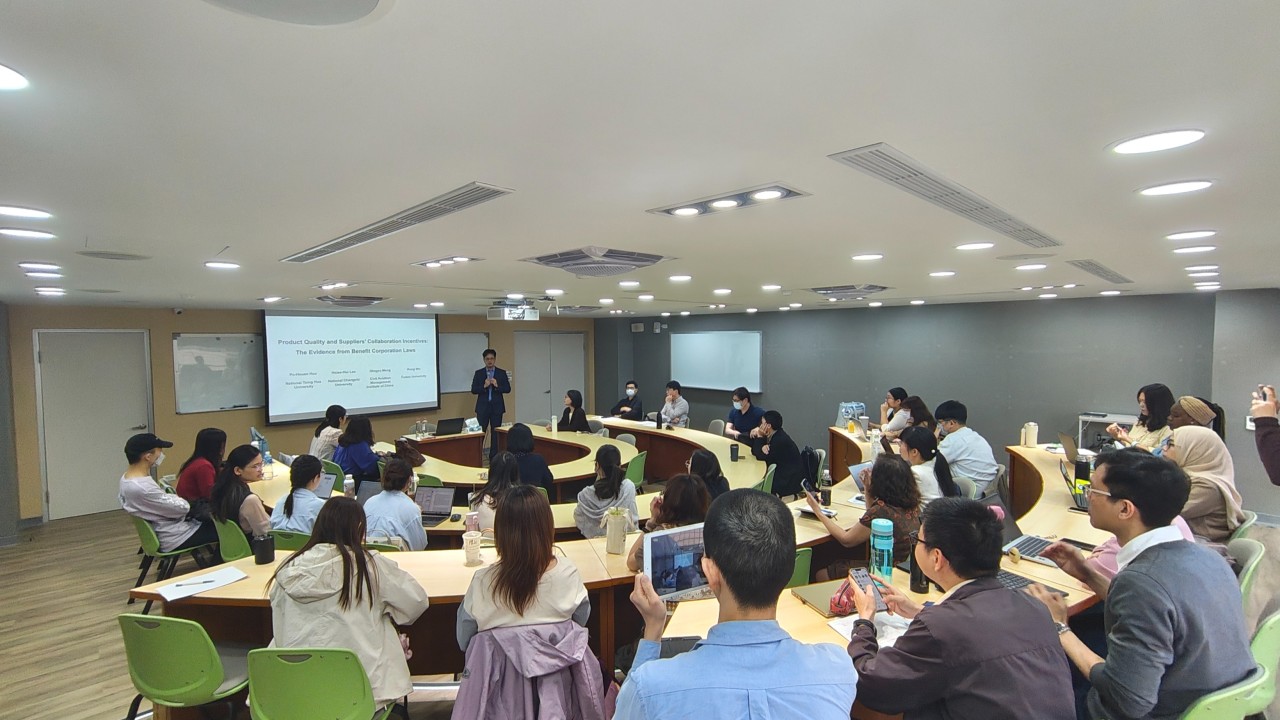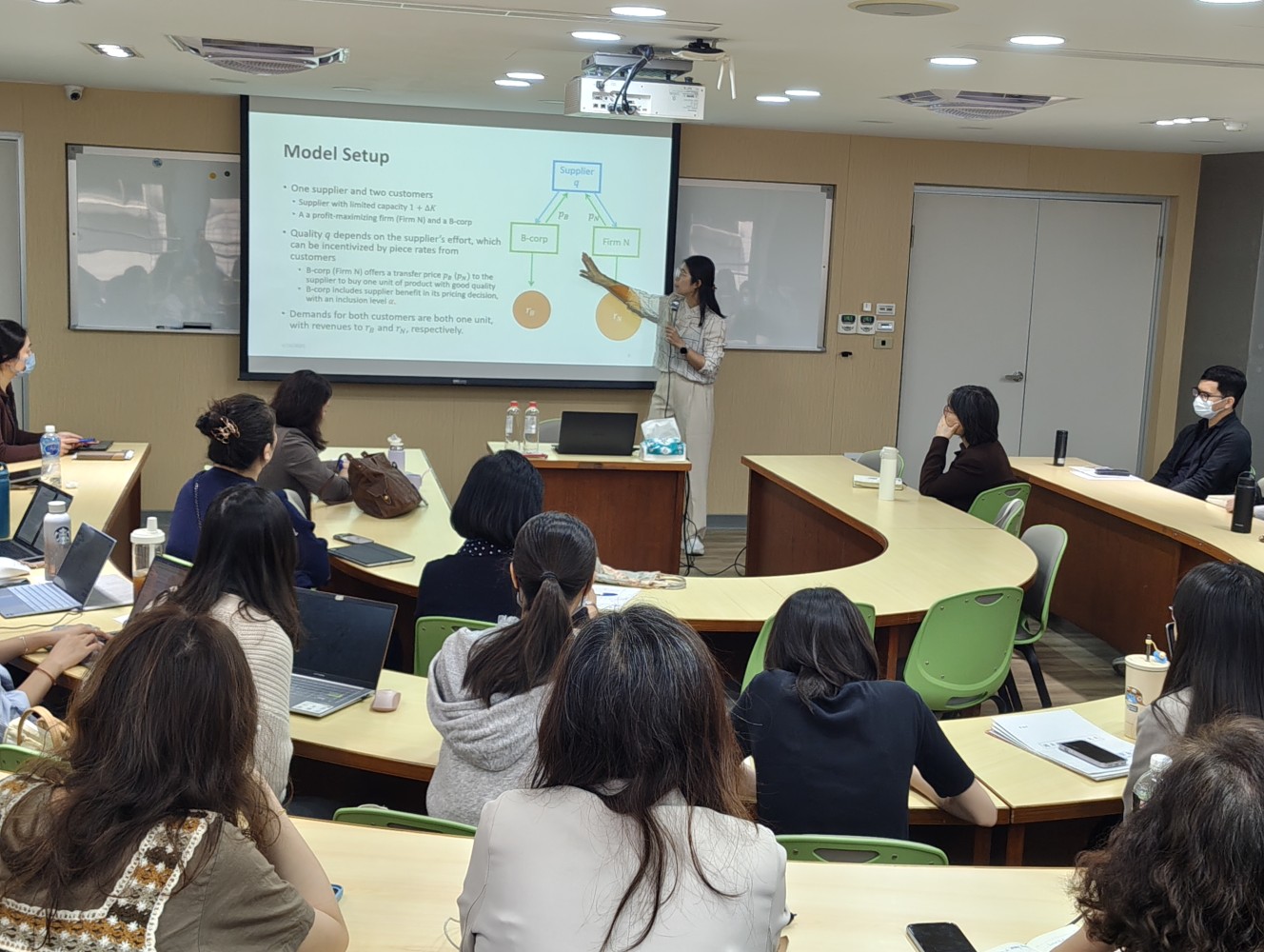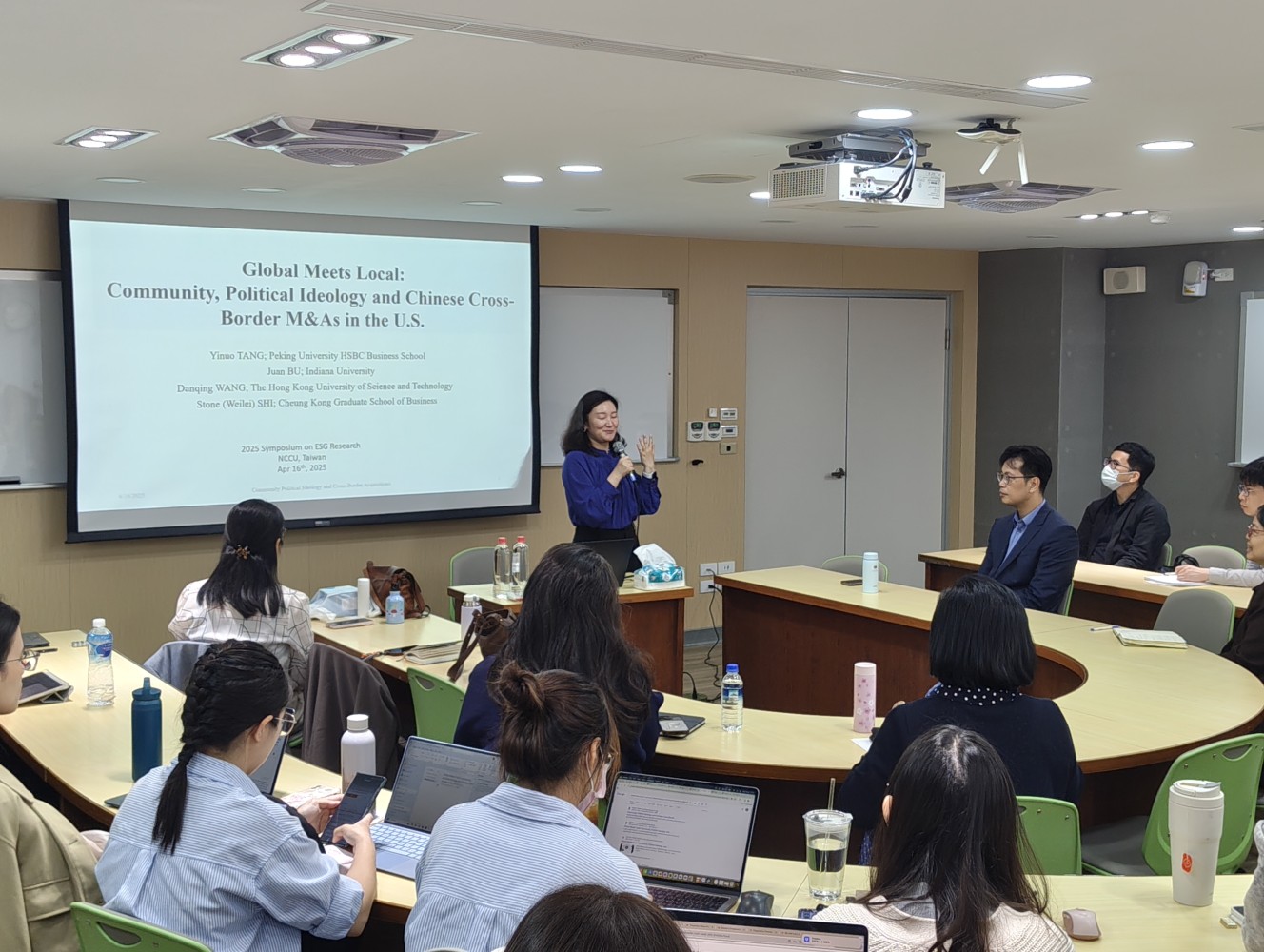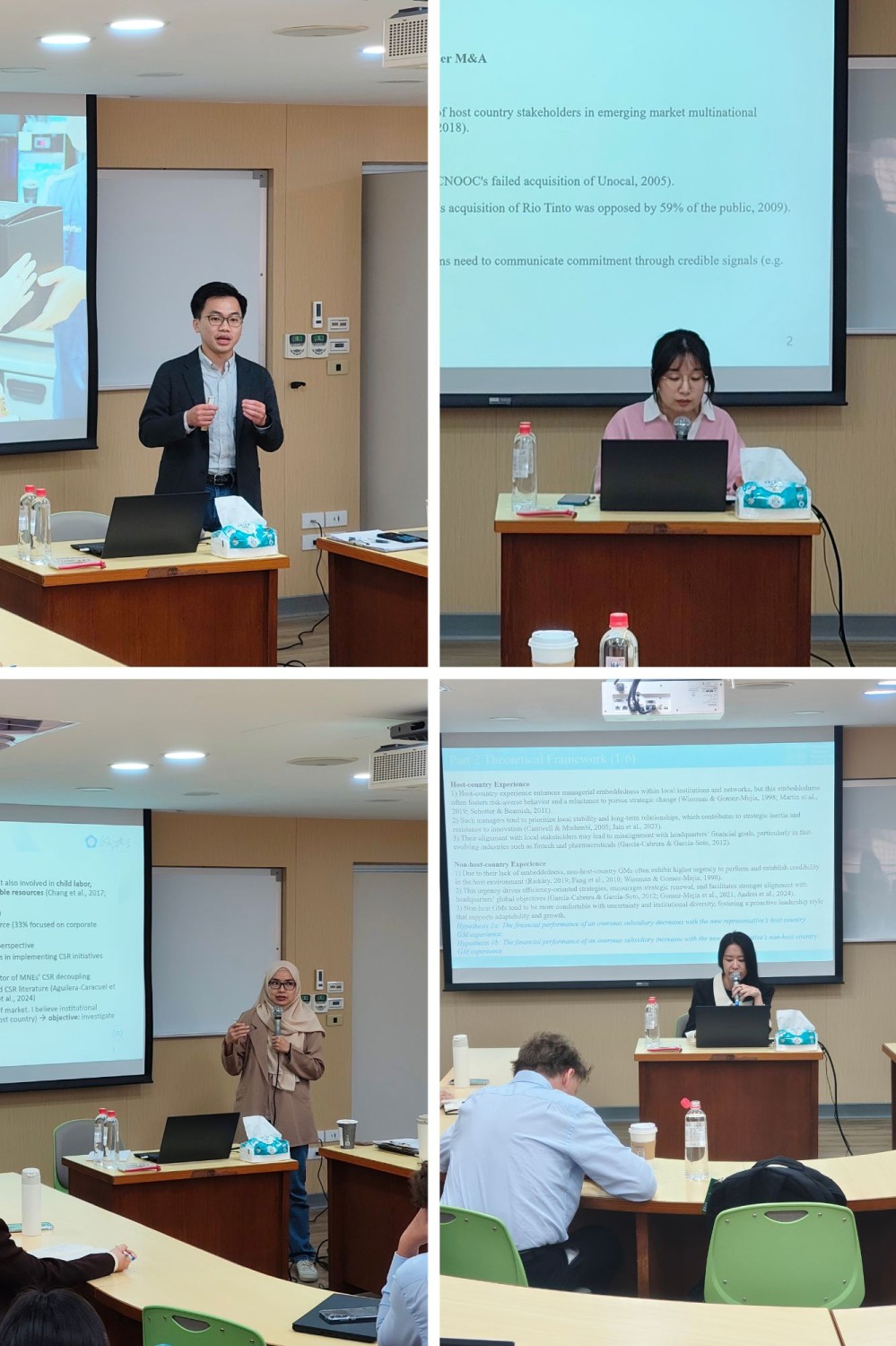
Professor Hsiao-Hui Lee presented her talk “Product Quality and Suppliers’ Collaboration Incentives: The Evidence from Benefit Corporation Laws.” The presentation sought to answer whether passage of B-Corp Laws might influence the quality of production from the supplier that reduces the probability of the product being recalled. With the passage of Benefit Corporation (B-Corp) laws, it forced Directors of B-corps to consider stakeholders’ interests when it came to production of products. The ideal of the B-corp laws would induce a spillover effect that improves big and small firms’ product quality and incorporate supplier’s interest in its supply chain management strategies.

Results from the tests conducted suggest that firms whose sole focus is maximizing profits, saw a decline in product quality since it does not take into account supplier interest, as they have no incentive to produce higher quality products. However, when firms consider suppliers’ interest, they produce better products that benefit profit margins and the durability of the product to the consumer, leading to a decline in recalls.
Assistant Professor Danqing Wang presented the talk “Global Meets Local: Community, Political Ideology and Chinese Cross-Border M&As in the U.S.” The presentation revolved around the concept of political ideology when considering Chinese Cross-Border M&As inside the United States. The research focused on the percentage of completion within the United States. Implementing a political spectrum between Conservative and Liberal, the presentation sought to answer three potential hypotheses: Would conservative communities be less likely to allow completion of said M&As? How might the media affect perception of Chinese M&As? And what role does a community’s economic status have in affecting peoples' opposition?

The findings revealed that depending on the community, be it a large city or rural area, those in more populated communities had a higher percentage of completion than less populated communities. Conservative communities are more likely to be un-trusting, and perceive these M&As by a Chinese buyer as a threat. If media presents a positive spin on M&As, communities are more likely to trust them, allowing their completion. However, when a community is under economic distress, it lowers the probability of successful completion of M&As. Of the total number of industries shown to have the highest percentage of completion, the top three were in Trade, Finance and telecommunications industries, whereas the lowest completed acquisitions were in the Manufacturing sector.
In the afternoon portion of the symposium, PhD recipients Jeng-Shian Wang, Xiaoya Tang, Luksi Visita, and Lok-Ting Chan all presented research proposals. Each student had fifteen minutes to present, followed by commentary from the panel. Topics included ESG practices in supply chain of product packaging, Signaling theory in EMNCs M&As, International distance in MNEs decoupling, and how Japanese GM performance abroad shapes subsidiary performance. After each student’s presentation, the three professors provided invaluable feedback on how to improve their research projects.

Overall, the all-day symposium event featured enlightening topics on ESG related issues, emphasizing the role of MNEs both locally and globally. Audience participants throughout the various talks produced insightful questions to challenge the research or provide the speakers an opportunity to elaborate on certain aspects of their research to provide extra clarity.



